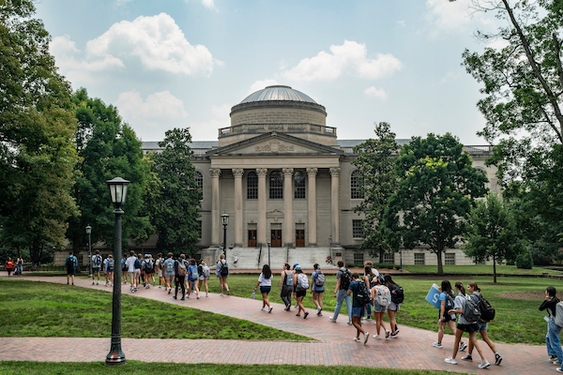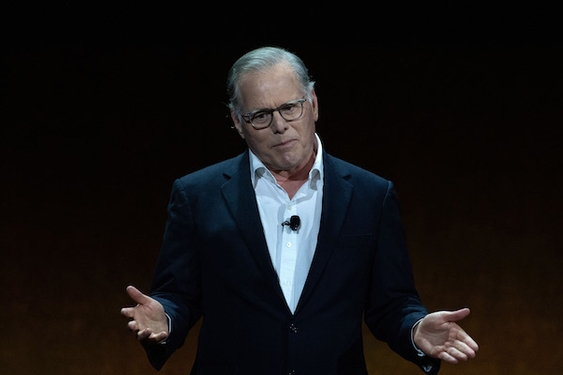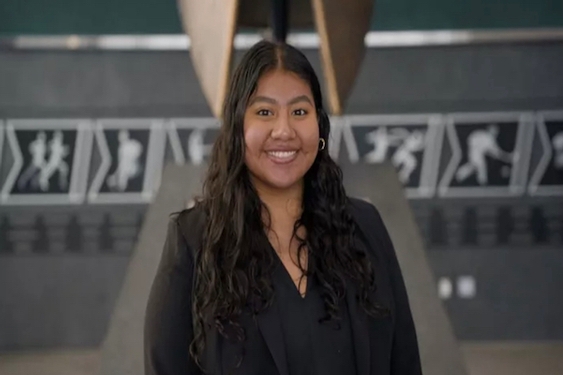From the times of ancient Greek Thespis of Icaria to the megastars of the industry today, acting has always been a part of human nature. The art of acting is integral to our ways of life. We act when we read stories out loud, sometimes when talking about an experience and – for some of us who have been bitten by the acting bug – acting is even a profession. In our town, the ‘I’m an actor’ line is heard pretty often, but as many times as you hear the statement, it’s rare that these actors are actually working.
However, most if not all of these people take their craft very seriously, and for those who are successful, if you ask them how they got there, the majority of the time you’ll hear: “I went to acting school.” Just like any trade, it’s important to have a strong educational background, as well as experience. That’s why the American Academy of Dramatic Arts is working hard to make sure students are provided with all the tools needed to succeed in this business.
With impressive alumni – including Paul Rudd (Role Models), Black Swan’s Toby Hemmingway, Sex and the City’s Kim Cattrall, Academy Award winner Adrien Brody, It’s Always Sunny in Philadelphia funnyman Danny DeVito and The Notebook’s Gena Rowlands – the American Academy of Dramatic Arts holds students to the highest of standards, and has even been called the “Cradle to the Stars” for their strict mission of providing students with a practical education and in turn those students becoming some of the industry’s biggest names. Indeed, the AADA is rich with acting history, with its very foundation built on Charlie Chaplin’s former studios.
The AADA’s Summer Programs in Los Angeles, intensive fast tracks to get you started on your conservatory training, are two weeks or four weeks in length and begin July 5.
Acting Director of Instruction, Theresa Hayes, explains, “At the Academy, we give our students the foundation to realize their dreams. There are key benefits to the Summer Program. For one, you get an overview of what our school can provide to you, it’s a snapshot of what the Fall Program will offer.”
Your core classes during the summer – including voice, speech and vocal production, among others – give you the basic tools all actors need.
“If you add an elective, like improvisation, you really get an even deeper understanding. If you are a transfer student, this is a great way to enhance concepts and even learn new techniques,” says Hayes.
Enrollment in the Fall Program’s First Year gives you 24 weeks of education on comedic exploration, theatre history and the Alexander technique. This technique instills proper posture and movement, and will help you learn how to effectively use your muscles in an efficient manner.
While it may seem like it’s a lot to take in at once, AADA stresses the need for total commitment, as these courses are the building blocks to success. The student to faculty ratio is about 16-to-1, so you can really expect a hands-on vested interest in your studies and great support from your instructors. AADA’s curriculum is progressive, with many of the faculty and administrators having worked with veteran theater professionals.
Hayes says, “Our instructors are focused on their intent to help students become more in tune with themselves, they work hard to create a interpersonal experience so the students came achieve full self realization.”
Work hard, and you’ll be invited to enroll in the second year courses using Shakespearian, stage combat and camera techniques.
“Once you have the foundation, now it’s up to you to prove it, the second year really separates the motivated from the non-motivated,” explains Hayes.
You will be exposed to even more imaginative facets of your craft and rehearse scenes adapted from literary greats like Anton Chekhov and prolific writer Johan Strindberg.
This summer, the AADA is hosting a Youth Program, a “serious acting experience for today’s talented youth.”
“I’m really excited that we are able to go into the schools and offer kids the chance to truly express themselves and be comfortable,” shares Hayes.
From July 5 through 22, students from the ages of 12-17 will be taught by some of the same teachers who instruct the Conservatory.
The AADA accepts students from all over the country and provides excellent merit-based scholarships based on your application and audition.
“We accept all ages and students. In fact, our Summer Program often has quite a few professionals returning to brush up on their techniques. We even have lawyers, psychologists and advertising executives attending the summer program, as our classes help instill confidence in presentations and studying behavior,” says Hayes.
If you’re really serious about your acting career, check out the programs the Academy of Dramatic Arts has to offer. Your audience is waiting for you!
For more information, visit aada.edu.
News: College Central
The American Academy of Dramatic Arts
By Erica Carter

Article posted on 5/4/2011
This article has been viewed 5572 times.











